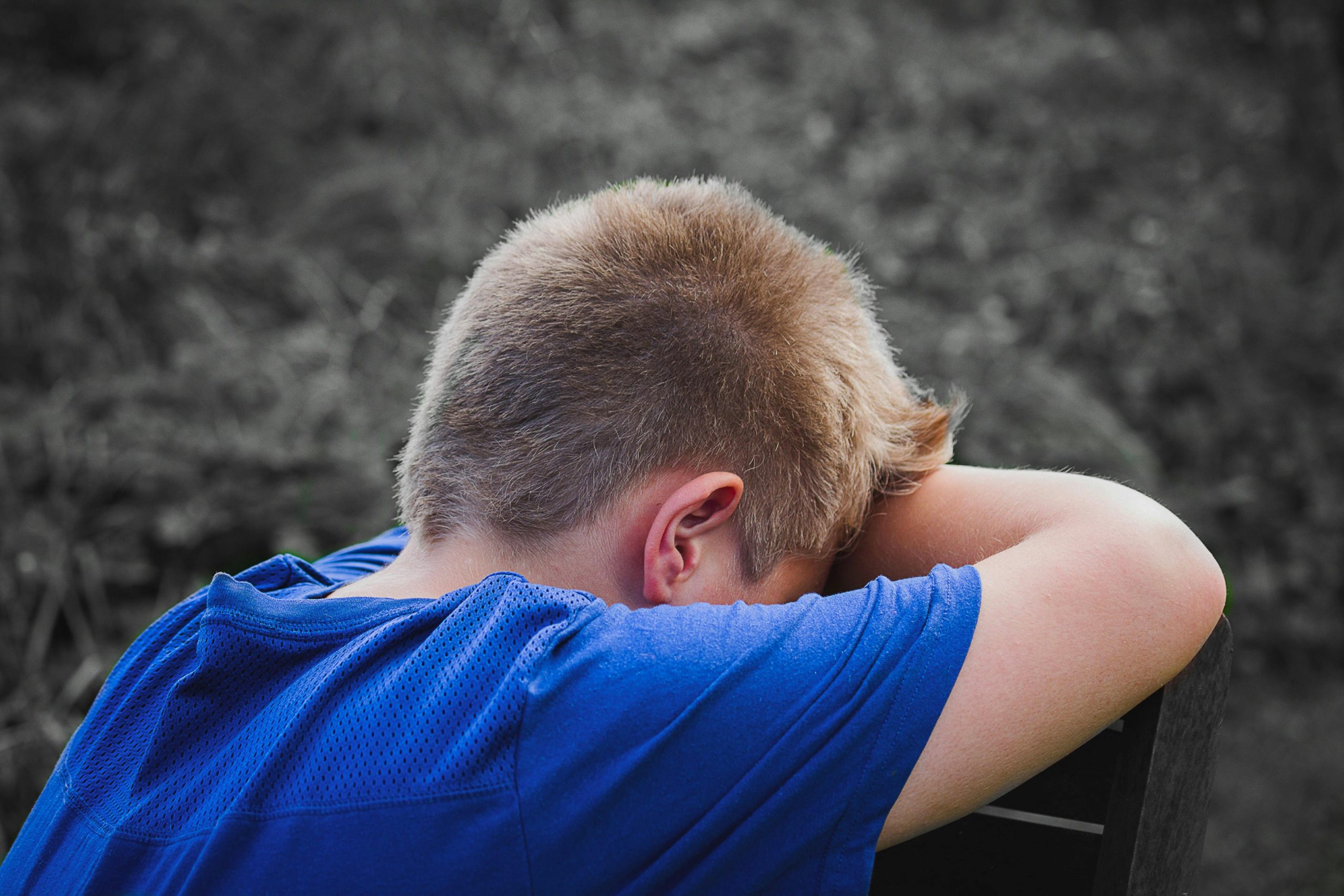This article was published on Thu 07 Nov 2024. At the time of publishing, this article was true and accurate, however, over time this may have changed. Some links may no longer work. If you have any concerns about this please contact us
Anti-Bullying Week 2024 is coordinated in England, Wales, and Northern Ireland by the Anti-Bullying Alliance. This year it has the theme ‘Choose Respect’ and will take place from Monday 11th to Friday 15th November. Odd Socks Day will take place on Tuesday 12th November, where adults and children wear odd socks to celebrate what makes us all unique. For more details click here.
All bullying is unacceptable and should not be tolerated. It can affect anyone at any point in their lives, as an adult or child, at school, at work, online, at home or in the community.
Bullying and harassment can be described as unwanted behaviour to cause harm or distress to another person. This behaviour may be offensive, intimidating, malicious, insulting, abusive, a misuse of power, humiliating, denigrating, or injure the recipient. Bullying can be related to age, gender, race, disability, religion, sexual orientation, nationality, or any personal characteristic of the individual. It may be an isolated incident or persistent. Bullying regularly includes homophobic, racist, or offensive language.
Types of bullying
Bullying falls under 4 main categories; psychological, verbal, physical and cyberbullying. It can have a serious impact on someone’s physical and mental health. Sustained bullying can cause stress, emotional issues, physical disorders and in some cases self-harm or even suicide.
When we think of bullies, we usually remember the ones we encountered at school, however, bullying doesn’t stop as a child for everyone, it continues into adult life for some. Many school bullies continue to bully into adulthood. This may be at work, at home or in the community.
An adult bully can be boss or colleague, a partner, a neighbour, a family member, a social acquaintance, online, or in the community.
To determine if you’re being bullied, ask yourself the following questions:
- Do I feel intimidated or threatened?
- Am I regularly humiliated or ridiculed?
- Have I been called names?
- Are my efforts consistently undervalued or disregarded?
- Do I feel unwell, apprehensive, or stressed when I have to spend time with a particular person?
If you answer yes to these questions, then there is a high possibility that you are being bullied. Bullying can create stress and anxiety and can lead to stress related health problems, including anxiety, panic attacks and depression.
If you’re the victim of an adult bully, there are a few things you can do:
- Learn to recognise bullying – when you realise that you are being bullied, you will be less likely to blame yourself for something that isn’t your fault and can start to get help & support.
- Realise that you can change your response – although it is impossible to change someone who doesn’t want to change, you can change how you respond to them.
- Learn how to set boundaries – be upfront and direct with the bully about how you plan to address their behaviour. Learn to be firm, confident, and assertive.
- Keep a journal to document the offenses – be specific about what you write down. Include the date, the time, the location, the incident that occurred or words that were said and any witnesses to the event. It also may be helpful to include how it made you feel or how it affected you. You also should record details about the complaints that you made and the responses you have received. This information will help managers or outside organisations.
- Report incidents – Being silent about bullying gives the bully more power and control over you. When you feel ready, report the bullying to your manager or HR if your bully is in the workplace or the local police, if the incidents are not work based. You could also speak to citizens advice.
- Remain calm – keep your emotions in check when sharing details about the bullying.
- Make eye contact – as bullies have less empathy when they can’t see your face or your eyes.
- Talk to friends and family – tell them what you are experiencing and ask for their support.
- Seek professional help or counselling – being bullied can affect your mood, your self-esteem, and even your physical health. So, it’s important to talk to a professional if you are struggling.
- Remember that you are not alone – workplace bullying is a widespread issue.
How to help your child when they are being bullied
As parents and carers, we all want our children to be happy and safe, and it is natural to worry about bullying, particularly if we have experienced bullying ourselves or think our child may be more vulnerable to bullying.
Children and young people may be reluctant to tell adults that they are being bullied. They might be because they are embarrassed, worried about burdening their parents or worried that telling someone might make the situation worse. But there are a number of potential signs to look out for if you are concerned. They may:
- become withdrawn
- have unexplained scratches and bruises
- have trouble with schoolwork
- they may not want to go to school or to the organisation where the bullying is taking place
- change their route to school
- not want to go out or play with their friends
- change their use of online and/or mobile technology
- complain of headaches, stomach aches and other pains
- become easily upset, tearful, ill-tempered or display other out-of-character behaviour.
The presence of the symptoms does not necessarily indicate that the child is being bullied, however, as a parent or carer you may be in the best position to recognise an unexplained change in behaviour that needs to be explored.
As a parent or carer, you have a role to play in guiding and supporting your child through their school years and there are many positive steps you can take to help keep your child safe from bullying and harm.
If your child tells you they are being bullied, there are a number of things you can do to help:
- Listen – effective listening can help you understand how your child is being affected and what you can do to help. It’s also important to pay attention to their body language and facial expressions. If they are reluctant to talk straight away, remind them that you are always available to listen, and they can talk to you at any time.
- Pay attention to changing behaviour – your child may not talk to you about being bullied but they may display other behaviours, such as becoming withdrawn.
- Don’t panic – remaining calm supports good listening and is reassuring for your child.
- Give them your full attention – this shows your child that you are taking them seriously.
- Be clear in your response – clearly explain the reasons for your concern and feedback sensitively what you have noticed.
- Talk to them about online safety – establish a clear understanding of the platforms they use, how they access them and the safety precautions they can put in place to control their own online environment.
- Ask them what they want you to do – exploring this will make your child feel valued and will help you to understand what support they need. It can be tempting to take over the situation, but it is important that they are given the opportunity to be involved in how it is dealt with.
- Make an appointment to speak to the head teacher, or the senior person where the bullying is happening – calmly explain to them what has been happening, giving them the details of when the incidents have taken place. Discuss what you would like to happen next and how you can proceed together. Agree a plan of action going forward and set a date to meet again to review the situation. You can also ask for a copy of their anti-bullying policy, as all schools, local authorities and youth groups should have one.
Online bullying
A lot of bullying takes place online. There are some things that you can do to help your child to stay safe when they are online. Explain to them:
- Be aware of what you post and share online and treat people with the same respect as you would if they were in the room – think about the impact your comments might have on them and how it might make them feel.
- Be careful about the information you share online – never give away personal details, such as your address, phone number and email address. Don’t share anyone else’s private information either. Keep your passwords safe and don’t share them with others.
- Everything you send and post online or through text message can be traced – including deleted posts – everything that’s posted online can be viewed, copied, and shared, and you never know who could read your posts. This goes for future potential employers and staff in colleges or universities you might be interested in applying to in the future.
- Being bullied online – treat this in the same way as if it was happening face to face. You can also unfriend or block people from your page and block numbers from your phone. You can ‘report abuse’ on social networking sites. Take screen shots of the bullying and create a log of any messages or texts you receive.
As a parent or carer we should also ensure all devices have parental controls on them and regularly check the phones, tablets or computers their children and teenagers are using.
Bullies and those attempting to groom children are on the increase and do use gaming and other apps to reach them.
For more details on ensuring your children are safe online read our guide here.
Support and sources of information
Anti-Bullying Alliance
Childline
National Bullying Helpline
Kidscape
Want to learn more? Access our wellbeing hub here.










